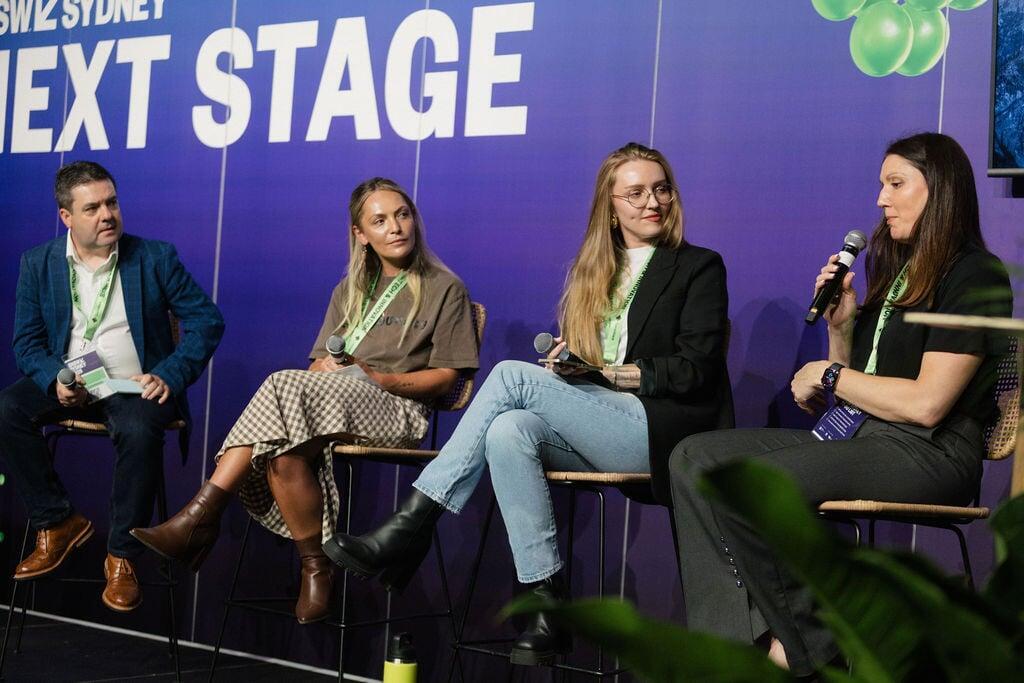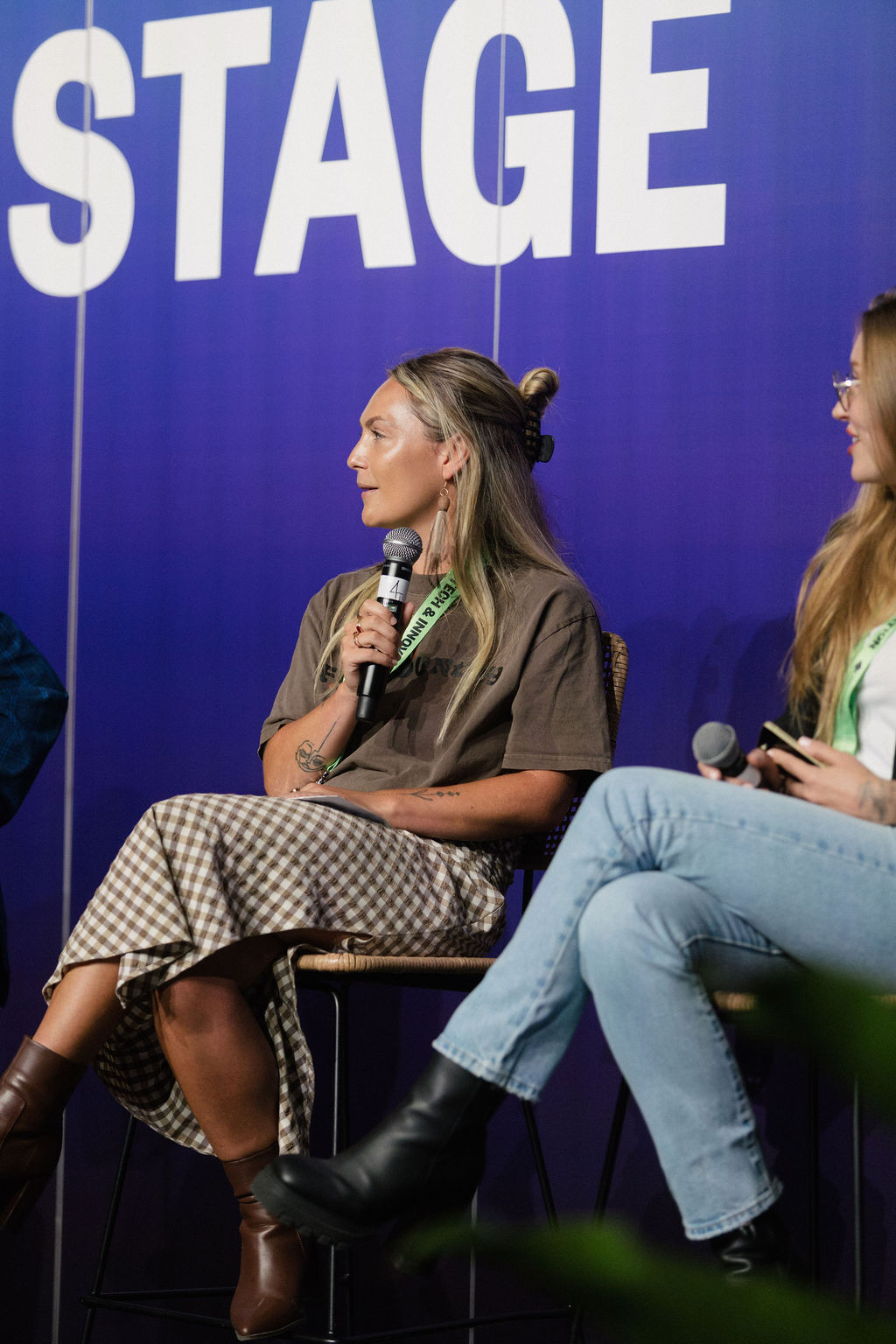This week at SXSW Sydney 2025, Indigital’s Peta-Anne Toohey, a proud Aboriginal woman with connections to the Gundungurra and Dharug peoples of the Blue Mountains and our Social Reciprocity Manager, joined Dr Anna Denejkina, Leigh Williams, and Dan Bowen on the Impact Stage presented by Charitabl for a powerful conversation titled The Art of the Possible: Reimagining Education Through AI, Culture & Care.

Image: Powerful conversations at SXSW Sydney 2025 Indigital’s Peta-Anne Toohey joined Dr Anna Denejkina, Leigh Williams, and Dan Bowen.
The Impact Stage celebrates ideas and organisations driving meaningful social change, those working at the intersection of innovation, equity, and ethics. This panel brought together diverse voices to explore how AI can transform learning when it’s shaped by human values, cultural wisdom, and lived experience.
What Social Reciprocity Means
Peta shared how Indigital measures impact through social reciprocity, our own cultural framework for mutual benefit, accountability, and respect.
In Western business models, impact is often measured through outputs and metrics, what’s delivered, who benefits, how far it reaches. These measures can be quite extractive, focusing on what can be counted or claimed as success, often through a Western lens of what success looks like. Social reciprocity flips that lens, asking a deeper question: What are we giving back, and how are relationships strengthened through this work?
"Our approach centres relationality, we look at the quality of connection, trust, and mutual care, rather than metrics or data that lacks cultural meaning or significance. Our framework values the ongoing exchange between people, communities, and Country as the true measure of impact." Peta explained.
That approach underpins our Caring for Country through Technology program across Western Cape York. Working alongside 11 clan groups in Weipa, Napranum, Mapoon, and Aurukun, we co-design digital skills programs that connect cultural knowledge with conservation technologies like AR, VR, eDNA, and Lidar, supporting communities to imagine and shape their own futures.

Culture First, Technology Follows
As the panel explored AI’s growing role in education, Peta reminded the audience that AI isn’t just a tool, it’s a system of ideas that must respect culture.
“We always start with Free Prior and Informed Consent and deep yarning,” she said. “Communities decide what should or shouldn’t be digitised. That’s how we ensure technology strengthens culture rather than extracting from it.”
Peta spoke about the tensions that arise when Indigenous Data Sovereignty intersects with artificial intelligence, particularly machine learning. She explained that when data is “vectorised”, converted into numerical values so machines can detect patterns, cultural meaning, identity and context can be stripped away. “A storyplace becomes a coordinate. A song becomes a datapoint,” she said.
“When that happens, we risk erasing the cultural significance embedded within that knowledge, which raises questions about ownership, custodianship, and who has the right to that data.”
She emphasised that true digital sovereignty isn’t about locking knowledge away, it’s about protecting context and ensuring communities have control and agency. “To move forward, we need to decolonise how we build technology,” Peta explained.
“That means creating intergenerational, community-led projects where mob are part of every stage, from interpreting data to shaping how it’s used, and embedding cultural tagging systems that make our protocols visible to the algorithms themselves.”
Equity Through Cultural Alignment
For Indigital, equitable access means more than providing devices, it’s about creating pathways that feel culturally grounded.
“When community can connect to technology and see how culture can be embedded into it, confidence and imaginations grows,” Peta shared. “We’ve seen Elders who say ‘I don’t do computers’ light up after building 3D models of their totems. That’s the moment technology becomes a bridge, not a barrier.”

Image: Peta shares what we mean by Social Reciprocity at SXSW Sydney.
As part of the Impact Stage series presented by Charitabl, this session reminded us that designing the future requires both imagination and care. Each panellist brought a unique lens from Dr Anna Denejkina’s research in technology ethics, to Leigh Williams’ leadership in inclusive innovation, and Dan Bowen’s expertise in educational transformation.
“As a proud First Nations woman,” Peta reflected, “I see AI not as a fixed path but as a set of choices. The way we design and use it will decide whether it deepens inequity or opens new possibilities.”
At Indigital, we’re choosing the latter, working to ensure technology serves Country, culture, and community, not the other way around.

